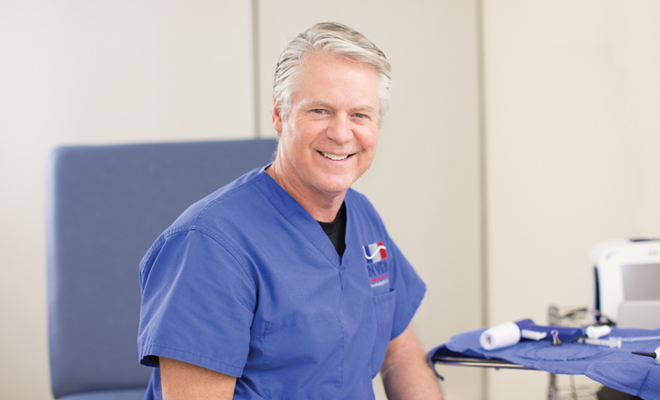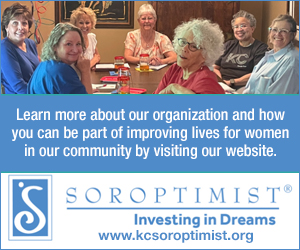 Kyndall Durkee
Kyndall Durkee
Smalling Vascular Institute: Interventional Cardiology and Collaborative Vascular Medicine
When medical issues arise, the best strategy is to address them as soon as possible to minimize the damage and speed recovery. But what if you have venous disease and the symptoms appear gradually over time?
This often happens with venous disease, which means that the vein walls of the legs are stretched too large for the small valves to work correctly. Venous disease occurs in both men and women, but females are slightly more prone to suffer from it. Genetics, height, weight, pregnancy and standing or sitting for long periods of time are some of the risk factors associated with it.
Awareness of Serious Symptoms
“The warning signs of venous disease are similar to other diseases and are often missed during diagnosis,” noted Dr. Ronnie Smalling, MD, FACC, FSCAI. “The symptoms include mild to severe swelling, especially in the evening, sock imprints on the skin or burning in the toes and feet. Late-stage disease is evident with the formation of enlarged veins, foot and ankle ulcers and calf eczema, staining or pitting. Lower leg swelling, fatigue, itching, burning or a combination of symptoms is often mid-stage disease.”
Dr. Smalling, an Interventional Cardiologist with 24 years of experience, is dedicated to leg and heart health. He’s founded the only comprehensive and dedicated vein center run by an Interventional Cardiologist in the area. Smalling Vascular Institute focuses on the treatment of Chronic Venous Insufficiency, or CVI, while assessing the peripheral or lower extremities for vascular disease from a cardiology perspective. The impressive 5,000-square-foot center in Overland Park, Kansas, offers four stand-alone procedure rooms to perform venous leg procedures and diagnostics of peripheral arterial disease or PAD.
“Dr. Smalling’s interventional work is impressive, and he has now dedicated his new practice to veins,” noted Happy Hayes, Practice Manager, Smalling Vascular Institute. “He has helped numerous patients avoid amputation, and he is well known for finding solutions to each patient’s complex issues. He opened and repaired arterial blockages in the past decades and is now focused solely on venous treatment.”
Specialization for Optimal Care
Interventional Cardiology is a highly specialized discipline within Cardiology. IC uses guide wires, stents and balloons to repair and open arteries in the legs and throughout the body. Dr. Smalling has employed his techniques on nearly 16,000 patients from throughout Springfield and Joplin, Missouri, and in the southeastern Kansas region. Yet he approaches each patient with an individualized plan for specific and optimal results.
“I’m very focused on quality-based medicine, partnering with area medical providers to drive improvements in a patient’s leg health quickly. I help referring physicians diagnose or rule out arterial or venous disease and other vascular concerns,” noted Dr. Smalling. “I’ll team with local wound doctors, dermatologists, endocrinologists, primary care physicians, podiatrists and other cardiologists to assemble the best provider team to treat and help manage all the aspects of leg vascular disease. It’s really collaborative medicine, delivering quality outcomes that are better, faster and cost-efficient.”
New Technology for Healing Veins
At Smalling Vascular Institute, Dr. Smalling performs venous ablating treatments using the most technologically advanced options available today. In addition, he is the only Kansas physician and one of only two Missouri physicians currently sanctioned to perform VenaSeal™, an FDA-approved adhesive used to close the insufficient veins, diverting blood from pooling in the ankles.
“The VenaSeal system delivers a small amount of proprietary medical grade super glue to shut down dysfunctional veins. The blood is re-routed to the more efficient and deeper venous system,” remarked Happy. “The busy professionals who cannot afford down time to recover from vein treatments are ideal candidatesfor VenaSeal.”
With the treatment, blood pumps more efficiently and effectively, returning to your heart through the deep common venous system. With VenaSeal, you don’t feel any heat or burning sensations during the procedure. There’s no need to use traditional tissue anesthesia, and there’s no down time. Most patients return to normal activities immediately following the surgery.
“The VenaSeal closure system is designed to allow rapid return to normal activities,” commented Dr. Smalling. “It’s amazing. I actually had a patient run two miles the day after the surgery. Basically, you’re treated one day and back to your life the next.”
To determine if you have venous insufficiency, Dr. Smalling’s team performs a ‘vein mapping’ test with an ultrasound to study how your veins function. The quick, inexpensive, painless test provides a virtual road map of your veins just beneath the skin where vein disease issues can be addressed.
Dr. Smalling compares the current treatment of interventional venous disease to where heart disease was in the late ’70s. Healthcare providers began focusing on preventing heart attacks, using a proactive versus a reactive approach. Rather than waiting until the patient develops obvious CVI symptoms, Dr. Smalling educates patients on managing leg health from young adulthood through their elder years.
Now’s the time to invest in future leg health by having your legs evaluated. Ask Dr. Smalling and his staff to help you develop your plan to stop venous disease in its tracks. ■
Call 913-912-3624 or visit the website at inveinmd.com. RSVP for VenaSeal Saturdays for your free screening and Q&A session throughout January and February. Space is limited.









